I admit I have a special fondness for Gods and Monsters for a couple of reasons. Not only is it a film about one of my Top Ten directors, but it’s something I had a very small personal relationship with. At the time the film had been completed — but still had no distributor — Scarlet Street magazine (for whom I was then associate editor) was planning an all-Whale, all-Gods and Monsters issue. Knowing that we really needed to see the film, Bill Condon’s boyfriend managed to slip a VHS copy of the film (at least it was in the right ratio) to Scarlet Street publisher Richard Valley. As a result, this was a film I managed to see before it even had a distribution deal.
Here is what we know from history. With the shift in power at Universal in 1936, the studio’s biggest director, James Whale, lost his clout, especially after his film The Road Back (1937) tanked. (“New Universal” had—thanks to pressure from the Nazi government—recut and reshot the film, but assumed no responsibility for its failure.) He made a few more pictures, but nothing after Show Boat (1936) was truly a “James Whale film” with everything that implies. In 1941, after trouble on the set of They Dare Not Love at Columbia, Whale retired from filmmaking. (Actress Kay Linaker, who knew Whale and was in the film, told me that Whale was clearly falling apart at the time.) He turned to painting as an artistic outlet. In 1957 he was found dead in his swimming pool under what were considered mysterious circumstances. In the early 1980s, Whale’s lover from 1932 to 1952, producer David Lewis, produced a suicide note, which has been accepted as the answer.
Christopher Bram’s novel and this film of it attempts to explain what might have happened in a totally fictionalized story. The story—involving Whale’s involvement with a working-class garderner named Clayton Boone (Brendan Fraser in a performance that makes you despair over his career)—is really just the means for a framework that allows the book and film to explore Whale’s mind. There was no Clayton Boone. For that matter, there was no housekeeper named Hannah (Oscar-nominated Lynne Redgrave, who was robbed that year by the Academy), but both probably are loose fits for Whale’s last lover and character actress Una O’Connor, who had remained Whale’s friend since The Invisible Man (1933) and Bride of Frankenstein (1935). Certain character traits certainly fit.
It’s somewhat amusing to note that Whale’s friend director Curtis Harrington told me he found the novel “cheeky,” but worked on (as an advisor) and approved of Gods and Monsters, even though the fictional—and completely unsymapthetic—character Edmund Kay (Jack Plotnick) comes across as having been based on Harrington. Perhaps he didn’t recognize himself. Or perhaps the raconteur value (Harrington was a terrific storyteller) and the chance to appear as a guest at a party caused him to ignore it.
The film follows Whale’s relationship with Boone—strictly non-sexual, though Whale is clearly attracted—and in so doing charts his mental disintegration due to a stroke (the stroke is factual). As the film progresses, Whale finds the past—his impoverished working-class background (which he’d lied about for years), his World War I experiences and the guilt of having survived the war, and his Hollywood days—flooding into his brain. He finds himself — quite unintentionally — telling Boone all about his lower-class past, of being taken out of school to work in a factory by parents (“They meant no harm. They were like a family of farmers who’d been given a giraffe and don’t know what to do with the creature except harness him to the plow”). The stroke has made it impossible to sort them out and his grasp on reality is slipping. This, the story, postulates led to the suicide.
Gods and Monsters is a remarkable film on many levels. It feels authentic even when you know it isn’t. It’s sympathetic and funny and deeply moving. Sometimes it’s darkly humorous and moving at the same time. It’s clearly a labor of love from everyone concerned—and from well-wishers if it comes to that, since Joel Coen loaned his collection of Whale paintings to decorate the director’s little studio. Though it’s very much writer-director Condon’s film, everybody contributed something. In fact, Brendan Fraser was responsible for one of the film’s most touching moments—having Boone strip for Whale after he learns that Whale has lost the motor skills to draw (in the script, it happened before he knew this). But then Fraser took the project very seriously, even discussing the meaning of his character with the novel’s author, whom he asked if the name Clayton was meant to suggest the clay from which man was formed. For his trouble, what he learned was that Bram merely thought it was a “good redneck name.” Oh, well. Sometimes a cigar is only a cigar, but in this film it’s usually more.
The Thursday Horror Picture Show will screen Gods and Monsters Thursday, July 23 at 8 p.m. in Theater Six at The Carolina Asheville and will be hosted by Xpress movie critics Ken Hanke and Justin Souther.



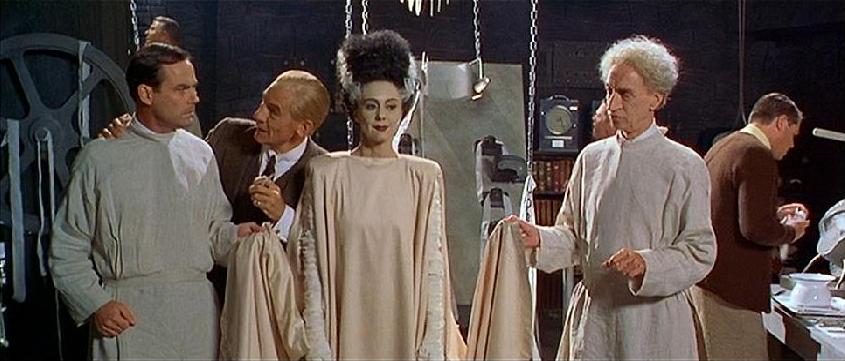
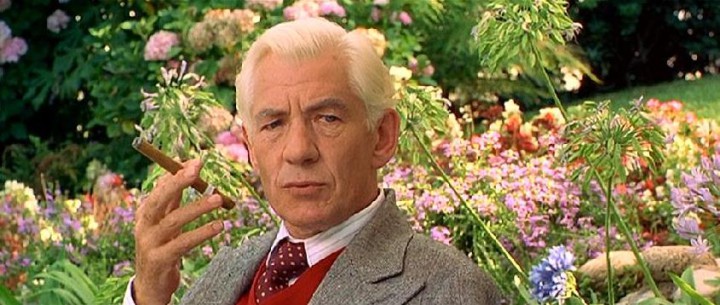
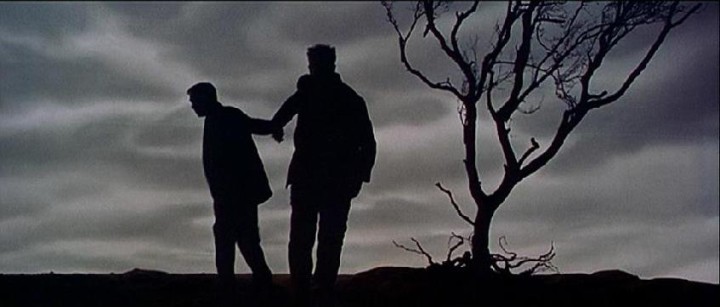
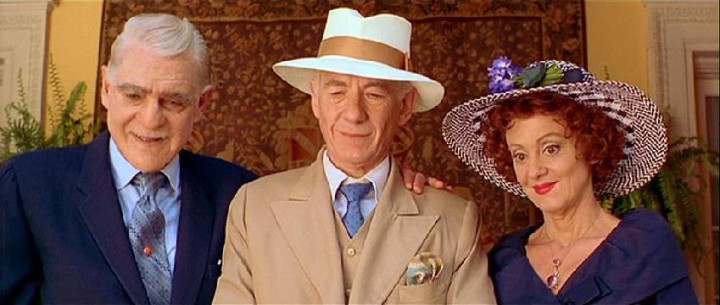
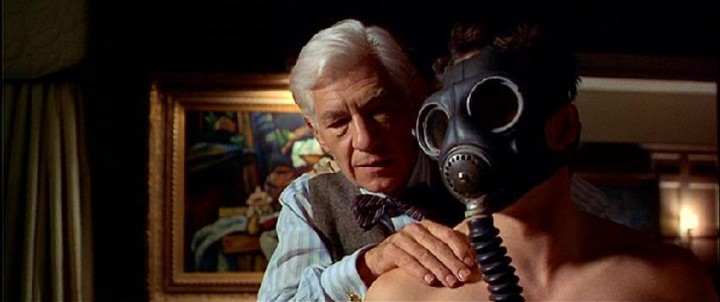
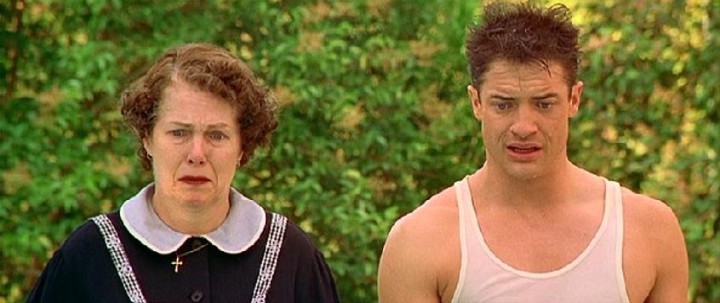
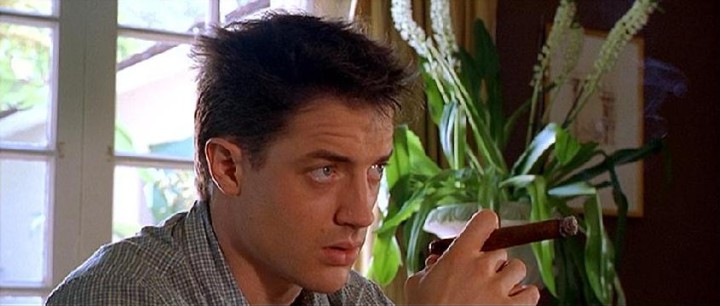
Reading this has me diving for my DVD copy and a rewatch. This was my favorite film for a long time, and the first one I remember really crying at.
I could save you a seat on Thursday…
I finally have a free night this month. I will be there. Its a great film.
Was this scheduled with Mr. Homes in mind or was it some miraculous coincidence?
It was scheduled before we knew when Mr. Holmes would get here, so it is just a happy chance.